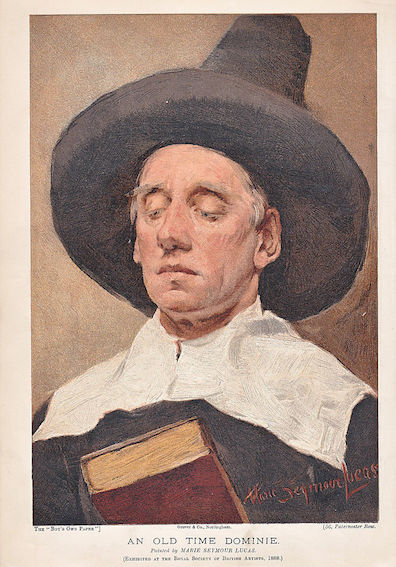Remembering the multifarious shells that his employer keeps
in a "stone mortar" on his office table, Stephen thinks,
"Dominie Deasy kens them a'." A dominie is a Scottish
schoolmaster, often one in the Protestant Church of Scotland.
In Scottish dialect, this one kens (knows) a' (all) the types
of shells. The implication that Deasy is ethnically Scottish
sits in some tension with his Irish name.
The term "dominie" is not unknown among Irish
Catholics—in his memoir Silent Years, J. F. Byrne uses
it for one of his teachers at Belvedere College (23)—but its
origins are Scottish. Stephen apparently lapses into Scottish
idiom because Deasy is from Ulster, much of which was settled by Scottish emigrants
in the 17th century. Richard Ellmann reports that the
real-life headmaster on whom Joyce modeled him, Francis Irwin, was an "Ulster
Scot, very pro-British" (33). He notes, however, that the
fictive name Joyce gives him is "oddly inappropriate for an
Ulster Scot." Deasy is an Irish name associated with counties
in the south and west, far from Ulster. There are some Deasy
families in Scotland, but they are relatively rare and may
possibly have resulted from emigration in the other direction.
One might speculate about the history of intermarriage (all
of it fictional) that could have produced such a chimerical
creature, but since Joyce's novel does nothing of the sort it
probably makes more sense to assume that the author simply
indulged two slightly incompatible impulses. He wanted his
character to embody financial prudence and Scots-Irish loyalty
to the English crown. He also wanted to give him a name that
would undercut his claim
that "We are all Irish, all kings' sons."
